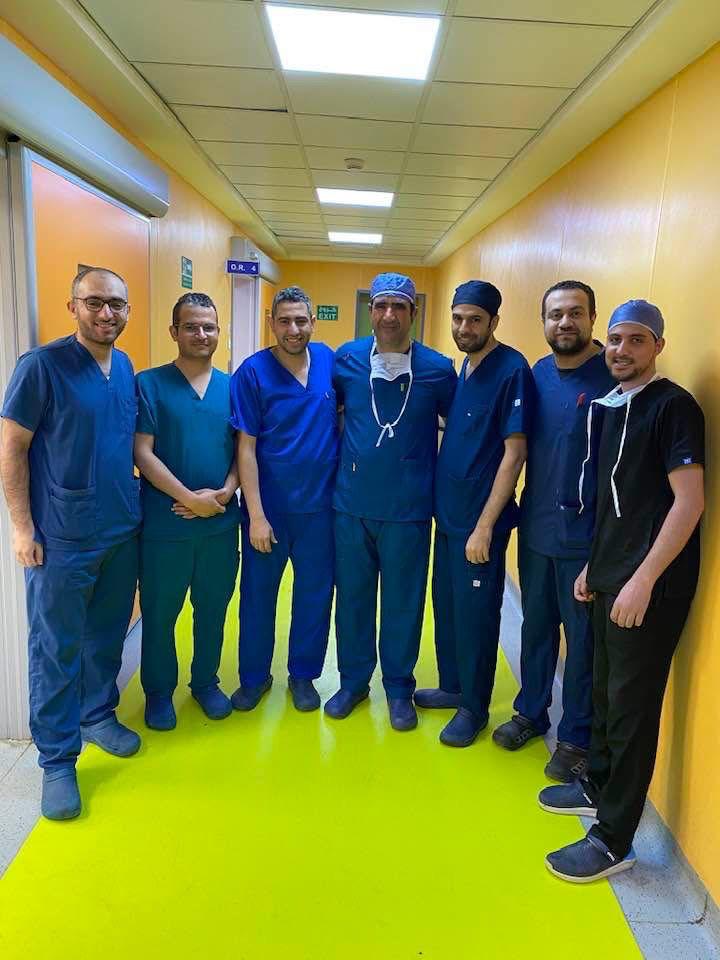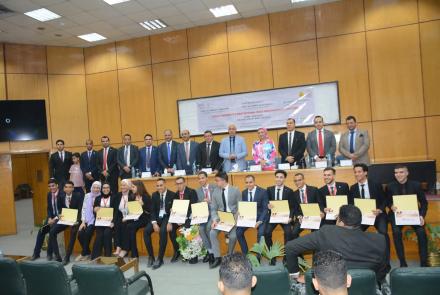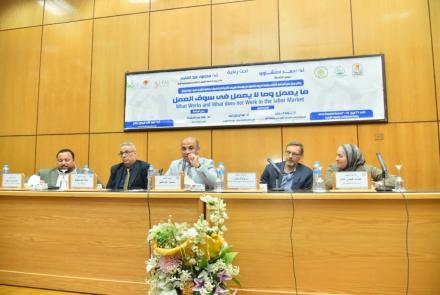Dr. El-Minshawy confirms the institute's leadership in advanced oncology surgeries using the latest technologies and improving the level of medical care for patients in Upper Egypt.
Dr. Ahmed El-Minshawy, President of Assiut University, announced that a medical team at the South Egypt Oncology Institute has successfully performed a complete laparoscopic Whipple operation to remove a cancerous tumor in the duodenum below the bile duct for a 60-year-old patient from the New Valley Governorate .
Dr. El-Minshawy stressed that this achievement reflects the great progress witnessed by the institute in the field of advanced oncology surgeries, praising the ability of the medical team to perform the surgery with high precision using the latest technology, which contributed to achieving a high success rate and minimizing complications, while enhancing the level of medical services provided to oncology patients in Upper Egypt.
The South Egypt Oncology Institute continues its leadership in advanced laparoscopic oncology surgeries, reflecting its commitment to providing the best medical care to Upper Egypt patients through the development of surgical techniques, training medical staff, and achieving the highest success rates in oncology treatment, under the supervision of Dr. Mohamed Abou El Magd, Dean of the South Egypt Oncology Institute, and Dr. Doaa Wadih Maximos, Head of the Department of Surgical Oncology.
This achievement comes after the patient arrived at the institute suffering from abdominal pain and bloating, and yellowing of the body, and after blood tests, tumor markers, and CT scans, she was diagnosed with cancer of the duodenum and bile duct. She underwent a bile duct endoscopy, where a sample of the tumor was taken and a stent was installed to facilitate the drainage of bile, using the latest medical technology available in the Institute's advanced endoscopy unit.
The medical team successfully performed the complete Whipple surgery laparoscopically in just six hours, compared to approximately 12 hours with traditional open surgery.After the operation, the patient spent two days in intensive care and then a week under close medical monitoring in the inpatient department, without any complications, reflecting the great progress in laparoscopic tumor surgeries.
Pathological analysis conducted during the operation confirmed that the tumor was entirely removed with sufficient safety margins, including parts of the intestine, bile duct, pancreas, and stomach. Additionally, 14 lymph nodes were excised, one of which was found to be affected, necessitating follow-up chemotherapy to ensure comprehensive disease control.
The surgery was performed by a specialized medical team, including Dr. Ali Zeidan, Professor of Oncology Surgery; Dr. Moheb Edour, Assistant Lecturer in Oncology Surgery; Dr. Andrew Mabrouk, Demonstrator in the Oncology Surgery Department; Dr. Montasser Abdel Fattah, Head of the Anesthesia and Intensive Care Team; and Dr. Marwa Tamam, Assistant Professor of Oncology Pathology. They were supported by a skilled nursing team who contributed to the surgery’s success and the patient’s postoperative care.
Dr. Mohamed Abou El Magd noted that the institute has been performing laparoscopic Whipple surgeries since 2019, continuously enhancing its techniques to conduct the procedure entirely laparoscopically without any abdominal incisions. This has led to reduced complications, accelerating the recovery for patients, and outstanding medical outcomes. He highlighted the advantages of laparoscopic surgery compared to open surgery, including similar recovery rates, less blood loss during the procedure, reduced postoperative pain, quicker recovery, and better quality of life with minimal impact on immunity.
Dr. Doaa Wadih Maximos explained that the surgery is known as a pancreaticoduodenectomy, during which the head of the pancreas, the first part of the small intestine, the gallbladder, and the bile duct are removed, as well as the last part of the stomach, the nearby lymph nodes around the pancreas, the liver artery, and the portal vein. At the end of the Whipple procedure, the surgeon reconnects the remaining organs to allow food to pass through the digestive system.
She confirmed that Laparoscopic surgical removal of tumors is just as effective as open laparotomy in terms of recovery rates and prevention of tumor recurrence or spread, with less blood loss and faster recovery in the absence of complications. Laparoscopy also helps improve gastrointestinal motility after the procedure, which speeds up the healing process and the patient's return to normal life.
She added that the use of laparoscopy contributes to the rapid diagnosis of an advanced tumor, allowing the patient to start chemotherapy or radiation immediately after surgery, as well as providing a better quality of life, reducing the negative impact on immunity, reducing the level of pain and the need for painkillers, while maintaining the shape of the body.
For his part, Dr. Ali Zeidan said that laparoscopic Whipple surgery is performed to treat patients with cancer of the pancreas, bile ducts, duodenum, and small intestine. He stressed that the surgery is considered a complex operation, as it involves many risks during and after the surgery, and is therefore only performed in major medical centers equipped with the latest technology and using experienced surgical teams to ensure the best results, minimize complications, and improve cancer recovery rates.








